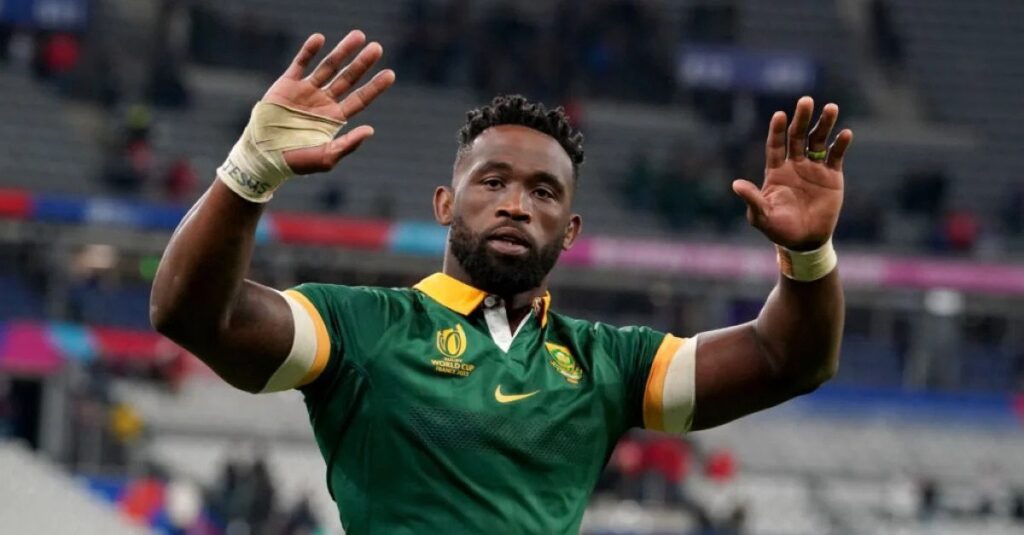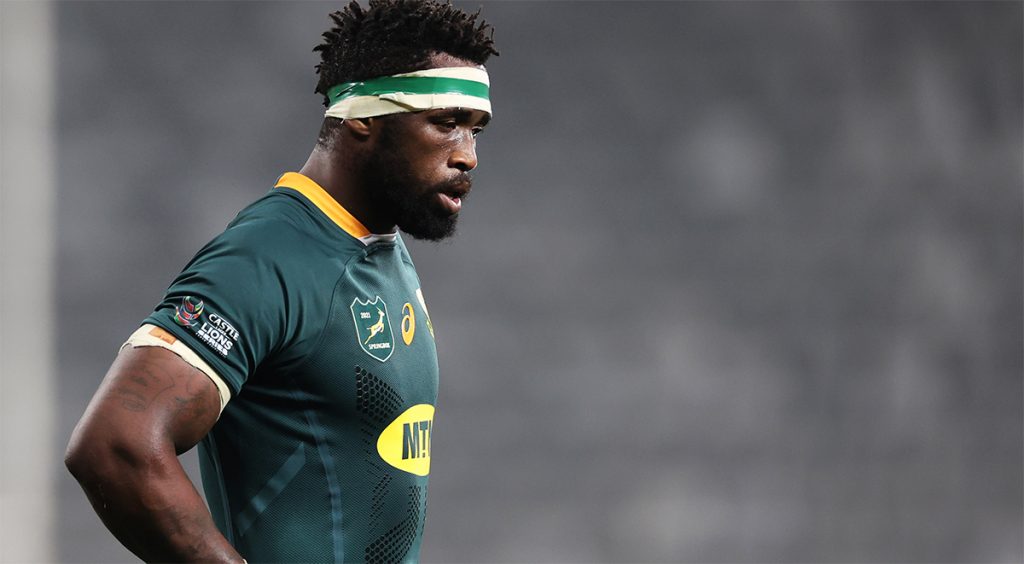Siya Kolisi opens up about stabbing incident in sobering interview with fellow player
Latest posts by Will Matthews (see all)
- Brian O’Driscoll slams Irish rugby fans that need to take a “hard look” at themselves - March 2, 2025
- New Zealander lands the head coach role at Munster Rugby - February 26, 2025
- ORIGIN ROUND: Shane Daly is proof that it’s never too late - February 25, 2025
Violent.
Springboks captain Siya Kolisi has carved out a truly incredible career for himself, and when you hear about his sobering upbringing – it holds even more substance.
For someone to captain their country to back-to-back Rugby World Cup titles, and transcend the game itself with his popularity, is truly remarkable. But to do it after growing up with a life filled with violence and struggle is a true mark of the man.
In a truly shocking interview with fellow professional rugby player, Dan Biggar, Kolisi has opened up about being stabbed while working in a bar in South Africa and having to simply ‘close his eyes’ when tear gas was thrown in because he had to protect the till.
Kolisi had a “violent childhood” back home and to see what he has become today despite all of this is truly amazing.
“I was a bartender when I was 16, illegally. Sometimes people would throw tear gas in but I couldn’t run away because I had to stand at the till and close my eyes,” he told Biggar in an interview with the Daily Mail.
“There were people being stabbed at the door but people carry on partying. I had a violent childhood. I got into a fight and he stabbed me as I was walking away, so I went back and we fought some more.”
Kolisi also opened up about his struggles to communicate when he was younger and the gender-based violence problems in South Africa.
“South Africa is number one in the world in gender-based violence. My aunt and my mum were the first people I knew that were being abused,” he added.
“In my community, you see it so many times that it becomes normal. That’s not good, being immune to things like that. If a man and a woman argued then it would end up in a fight, because men don’t really speak.
“I learnt to speak by going through therapy. I had to go to marriage counselling because I couldn’t give everything to my wife, because my heart was so hard and I didn’t know how to speak.
“In my late 20s, I started talking to someone and the first time I went she said: ‘You are damaged in every level. The stuff that you saw is not normal’.
“It’s extreme, it’s bad. You have to speak about it, get through it. That’s why you grow up and your heart is so hard. Something happens in the community, you fight with someone, forgive them, and you move on. That’s normal in my neighbourhood.”



